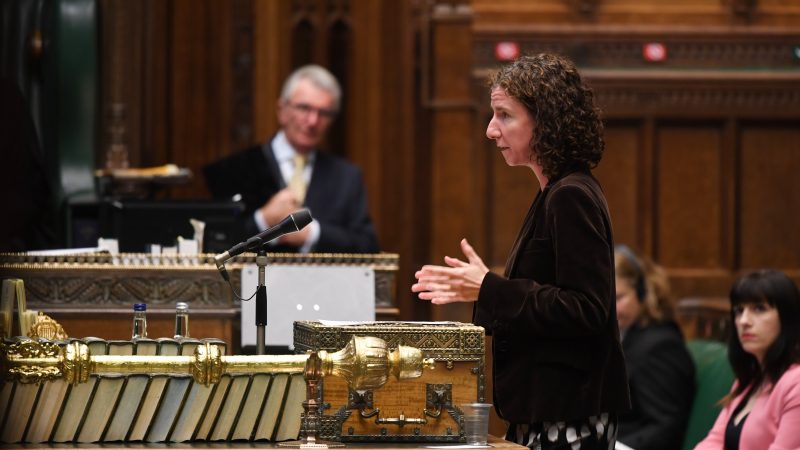
Labour is not going to oppose the personal allowances freeze in Rishi Sunak’s Budget. The Chancellor has announced that the amount of money you can earn tax-free will rise from £12,500 to £12,570 in April as planned, but will then remain at that level until 2026. The measure has been described as a ‘stealth’ tax rise: although no income tax hike is being enacted, Sunak’s move will increase the amount of tax paid.
Critics have pointed out that not raising personal allowances in line with inflation means 1.3 million low-income workers will effectively start seeing their tax bill rise from April. Left-wing group Momentum has said Labour should be supporting increases in the rates of tax paid by profitable corporations and the mega-rich, rather than lower-income workers bearing the burden. “Our party has to be crystal clear about whose side we’re on – and equally, whose side we’re not on,” a spokesperson said. “Key workers need a pay rise, not a tax rise.”
The Labour leadership made it clear in recent weeks that the party would not back immediate tax rises of any kind. This sparked an internal row, the focus of which was the possibility that Sunak would unveil a corporation tax rise. Would Labour really oppose hitting those who have profited during the pandemic harder? This argument turned out to be a bit of a damp squib as Labour did not object to the announcement of a delayed increase from 19% to 25% in 2023. Timing was key. The personal allowance freeze that translates to an income tax increase, however, takes place immediately – and yet Labour will not be opposing that either.
The threshold for personal allowances normally increases at least by inflation. This planned freeze represents a 7% real-terms cut and will cost taxpayers £19bn over the next five years, and a typical standard basic-rate payer will pay an additional £170 more in 2025-6. The Office for Budget Responsibility has noted that if you take into account the rise in living costs, the move effectively brings the personal allowance rate back to where it was in 2014-15. Stealthy though it may be, it is very much a tax rise. Why, then, given Labour’s ‘this-is-not-the-right-time’ stance on tax over the past few weeks, is the party not opposing this freeze?
“We are not going to oppose change to that personal allowance, the freezing of it that the Chancellor set out for the future, because actually what the Conservatives have done around this previously has benefited the best-off most,” Labour’s Anneliese Dodds explained today. “And they’ve not, for example, backed low-income families with social security in the way that they needed to.” She added that it will have “more of an impact on better-off people” and the government needs “much more of a focus on low-income families”.
Labour says raising personal allowance is regressive. Since 2010-11, personal allowances have increased from £6,475 to its current £12,500. When it increases by £500, someone currently earning £12,500 is £100 better-off. But, at the same time, so is someone earning £25,000 or £30,000. It gives a tax cut to a huge swathe of the population, not just those on the lower end of the income distribution. In fact, those on the very lowest incomes, earning under £12,500, would see no benefit to its increase, while many earning much more would.
The benefits of the Tories have done with personal allowances over the past 11 years have been skewed towards middle and higher earners, and away from those at the bottom, Dodds argues. But critics would say Labour is supporting a tax move that will pull 1.3 million low-paid people into paying income tax, while remaining silent on calls for a Covid windfall tax – on companies that have done well during the pandemic – and defending in the immediate term the very low rate of corporation tax. The opposition frontbench has given a decent explanation of why it believes personal allowance increases are regressive. The overall picture of Labour’s stances on tax, however, is awkward – and does not lend itself to the clarity implied by the ‘no tax rises’ line taken ahead of the Budget.




More from LabourList
Nudification apps facilitate digital sexual assault – and they should be banned
Diane Abbott suspended from Labour after defending racism comments
Labour campaign groups join forces to call for reinstatement of MPs